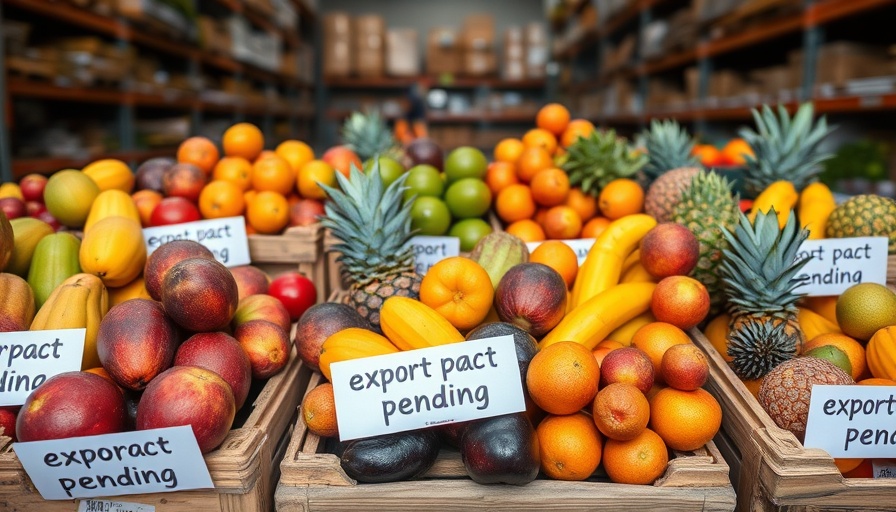
Understanding the Newly Updated Prohibited and Restricted Imports and Exports List
On August 4, 2025, South Africa's Revenue Service (SARS) made significant updates to its Prohibited and Restricted Imports and Exports list. This revision is critical for professionals engaged in trade and regulatory compliance, signaling changes that can influence international shipping processes. Notably, tariff heading 9018.12 now does not require a Letter of Authority. Additionally, a series of new tariff headings related to various oil products have been included, potentially impacting market dynamics and trade practices.
Why These Updates Matter: A Key Insight for Trade Professionals
Changes in the prohibited and restricted lists are more than mere bureaucratic updates; they have far-reaching consequences for importers and exporters. Understanding these modifications is essential for anyone engaged in international commerce to avoid penalties. Moreover, knowledge of the complete list enables businesses to optimize logistics strategies and navigate compliance challenges effectively.
Historical Context: The Evolution of Trade Regulations in South Africa
Historically, trade regulations have been pivotal in safeguarding public health and national security. The introduction of these new tariff categories reflects South Africa's ongoing efforts to adapt its import and export practices to global standards. As markets evolve and new health challenges emerge, tear up sections of trade policy that seem rigid, allowing for a more fluid response to unforeseen events.
Future Predictions: Trends in Global Trade Regulations
Given the developments in global health and environmental concerns, future iterations of import and export regulations may increasingly focus on sustainability and ethical trade practices. Industries should prepare for stricter controls on products that pose environmental risks or health threats, suggesting a shift towards a more protective regulatory environment worldwide.
Connection to Current Events: Trade in a Post-Pandemic World
In the aftermath of crises like the COVID-19 pandemic, governments worldwide have had to reconsider their trade policies. This latest update serves as a reminder to all involved in trade that such policies will continuously evolve. Professionals must stay informed about these changes to maintain compliance and not fall foul of regulatory measures that can severely impact business operations.
Actionable Insights: Steps for Professionals to Navigate These Changes
For professionals in the import and export sector, it is essential to review the updated list and conduct a compliance audit of their current practices. Establishing clear communication channels with regulatory bodies can also assist in navigating these changes. Engaging in continual education around trade regulations will enhance preparedness for future amendments.
Understanding the Impact of Regulatory Changes on Business
Changes in trade regulations can significantly influence market operations, affecting everything from costs to supplier relationships. Cooling competitive pressures can lead businesses to make swift strategic decisions regarding sourcing and distribution, urging a reevaluation of their logistics frameworks. Incorporating regular training sessions on compliance and regulatory updates into business operations can ensure that teams remain agile and informed.
Conclusion: Staying Ahead in a Changing Trade Landscape
As we move forward, understanding the complexities of import and export regulations will not only protect businesses from potential sanctions but also open up new avenues for growth. The proactive engagement in these updates can empower professionals to leverage new opportunities in the marketplace.
In this ever-evolving trade landscape, staying informed and compliant is not just a legal necessity; it's a strategic advantage. For businesses looking to thrive in the future, embracing these updates can make all the difference.
 Add Row
Add Row  Add
Add 




Write A Comment